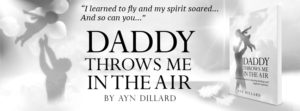Do you use this much over-used word of the day to accuse/insult even categorize others whom you view as having certain traits?  In Greek Mythology – which is where this personality disorder of Narcissism derives. The story goes – that there was a wood nymph named Echo who loved to talk. For some reason, she displeased the gods, so they put a curse on her which was she was only able to repeat what she heard – repeat that which others said to her, back to them.
In Greek Mythology – which is where this personality disorder of Narcissism derives. The story goes – that there was a wood nymph named Echo who loved to talk. For some reason, she displeased the gods, so they put a curse on her which was she was only able to repeat what she heard – repeat that which others said to her, back to them.
Echo was in love with a young warrior named Narcissus – who also displeased the gods – so they put a curse on him – which was – that when he was looking into a lake, he would fall in love with his own reflection – and be able to love no one else but his image. Who knows what these two did to displease the gods- but the gods back then seemed to be easily displeased and also curse happy.
Hence the personality ‘disorder’ of Narcissism began and was created. BUT did you notice and realize that Narcissus fell in love with his ‘image’ – not who he really was – BIG DIFFERENCE! Then as the story goes, Echo who loved Narcissus couldn’t let him know that she loved him because she could only repeat what he said back to her. Therefore, Narcissus never knew how much Echo loved him. Therefore, Narcissist was doomed to love only the image that the world saw of him – he couldn’t really love himself or Echo or feel love from others. He lived a life obsessed with his ‘image.’ Not the way he actually looked or was, but the ‘image’ that he created and was seen by the world. His image was everything to him because he could not genuinely see, understand or love self. Narcissus means numbness in Greek. He was empty/numb inside with no true feelings and only about his image. He had no ability to genuinely feel – internally he was void – so he ‘acted’ what he thought was appropriate by observing others.
Echo loved him, but had no way to let him know – therefore, Narcissus could feel no love or emotion from her. Two truly cursed people. Since relationships are our biggest teachers – these two were stuck in being alone and unable to relate. They were emotionally numb and void.
Narcissism is not about taking selfies or focusing on looks, but that could be one minor trait. Narcissists more often than not do not like their looks or their self – especially their inner self – they are all about ‘image’. They are emotionally numb, empty and lost souls.
Narcissism is an inability to feel empathy – being all about the wants needs of self for their self-image – the image that they create for the world to see – not caring, giving to, or thinking much about anyone else, unless they can enhance or add to their image. It’s an empty internal existence. It’s an existence all about ‘me, myself & I’ – full of emptiness and, or pain – they often fall into narcissistic depression.
The Narcissistic Relationship
It’s easy to fall in love with narcissists. Don’t judge yourself for succumbing because research shows that strangers’ initial impressions of narcissists for the first seven meetings are positive. They’re seen as charming, agreeable, confident, open, well-adjusted and entertaining. Their alluring performance is designed to win trust and love, implicitly promising that their attentiveness will continue. Only later, did the research subjects see through the narcissists’ likable façade. Covert narcissists are even more disarming – because their outward image is that of kind, caring, helpful and without the usual grandiose narcissist displays – they are more subtle and obviously ‘covert’. They can quickly pull on their target’s heart strings of caring for, and protection of.
Difficulties and conflict arise in longer narcissistic relationships. At home, narcissists may privately denigrate the person they were just publicly entertaining, and after a romantic prelude, they act totally different. Once you’re hooked, they lack the motivation to maintain a charismatic façade. As the excitement of romance wanes, narcissists become disappointed in their partner. Their criticisms escalate and they may act distant and dismissive. The relationship revolves around the narcissist, while others are viewed merely as objects to use in order to manage the narcissist’s needs and fragile even empty self-esteem. Embarrassed partners watch their mate flirt with a cashier, cut to the front of the line, or castigate a clerk or waitress. They must contend with demands, judgments, and self-centeredness. They’re expected to appreciate the narcissist’s specialness, meet his or her needs for admiration, service, love, or purchases when needed — and are dismissed when they don’t.
Narcissists put themselves first, and their codependent partners concur. Both agree that the narcissist is great and that his or her mate isn’t as great and should sacrifice! This makes their relationship work … in the beginning that is. Eventually, the partner feels drained, hurt, resentful, disrespected, and lonely.
The children and partners of narcissists share Echo’s experience of feeling rejected, invisible and unheard. They long to be seen, to have their needs met, and their love returned. Many partners of narcissists sadly pine away for years longing to feel respected, important, appreciated, and cared about. Their self-esteem suffers over time. They risk turning into empty shells of their former selves. Narcissists suffer, too, because they’re never satisfied. Even though Narcissus and Echo both long for love, Narcissus can neither give love, nor receive the love Echo offers.
If you can’t feel emotions, you are the walking dead, trying to fit in as a human, but actually are a walking zombie.
Learn how to identify and process your feelings, emotions, imprints and beliefs. DADDY THROWS ME IN THE AIR available on Amazon, Barnes & Noble and other usual places.

